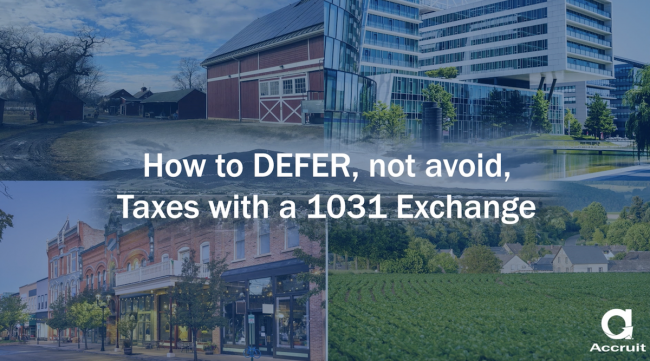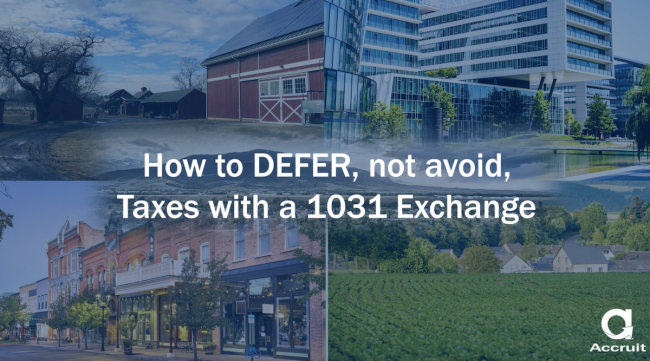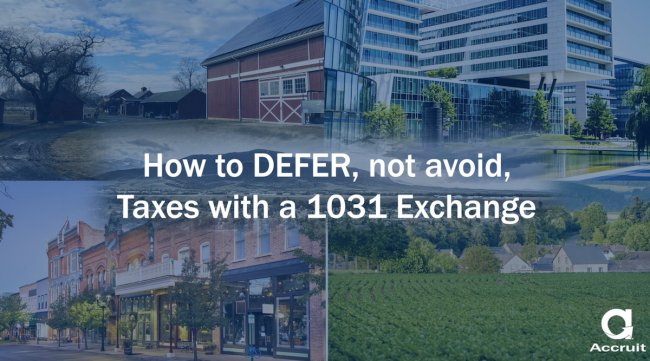Depreciation recapture is a tax provision that requires taxpayers to pay taxes on the depreciation taken on a depreciable asset during the time the taxpayer owned the asset. The sale of the asset generates the tax liability. If you sold business or investment property in 2022 and did not utilize a 1031 exchange, you are likely faced with reporting your depreciation recapture tax owed on your 2022 Tax Return.
How to Report Depreciation Recapture Tax
To report depreciation recapture tax on your annual tax return, you will need to follow these steps:
Calculate the amount of depreciation recapture tax owed on real estate: To do this, you will need to determine the amount of depreciation claimed on the asset during the time that you owned it. The total of all depreciation taken is the amount of gain that is subject to depreciation recapture tax. The federal tax rate for depreciation recapture is 25%. Simple the calculation process by utilizing our Depreciation Calculator.
Complete Form 4797: This form is used to report the sale of business property and the amount of depreciation recapture tax owed. You will need to provide information about the property being sold, including the purchase date, purchase price, and the amount of depreciation claimed. You will also need to calculate the amount of depreciation recapture tax owed and report it on the form.
Transfer the information to your tax return: Once you have completed Form 4797, you will need to transfer the information to your tax return. The amount of depreciation recapture tax owed will be included on your Schedule D (Capital Gains and Losses) and will be subject to the applicable tax rate.
It is important to note that the rules and procedures for reporting depreciation recapture tax may vary depending on the specific circumstances of the sale. It is recommended that you consult with a tax advisor for guidance on how to properly report depreciation recapture tax on your tax return.
Real Property & Beyond: Popular Examples of Assets Subject to Depreciation Recapture Tax
Depreciation recapture tax applies to the sale of real estate as well as other certain types of depreciable assets. Some popular examples of assets subject to depreciation recapture tax include:
Real estate: Buildings, land improvements, and other types of real estate that have been used for business purposes may be subject to depreciation recapture tax.
Vehicles: Commercial vehicles, such as trucks and buses, that have been used for business purposes may be subject to depreciation recapture tax.
Equipment: Machinery, tools, and other types of equipment that have been used for business purposes may be subject to depreciation recapture tax.
Intangible assets: Certain types of intangible assets, such as patents, copyrights, and trademarks, may be subject to depreciation recapture tax.
Rental property: Rental properties that have been depreciated over time may be subject to depreciation recapture tax when sold.
Partnership interests: Partnerships that have depreciated assets may pass on depreciation recapture tax liability to their partners when those assets are sold.
Defer Depreciation Recapture Tax
If you are reporting Depreciation Recapture Tax on your upcoming annual tax return, it is too late for a 1031 exchange, but for future knowledge a 1031 Exchange allows for the deferral of Depreciation Recapture Tax on the sale of qualifying real estate.
Learn more about your depreciation options in a 1031 Exchange.









